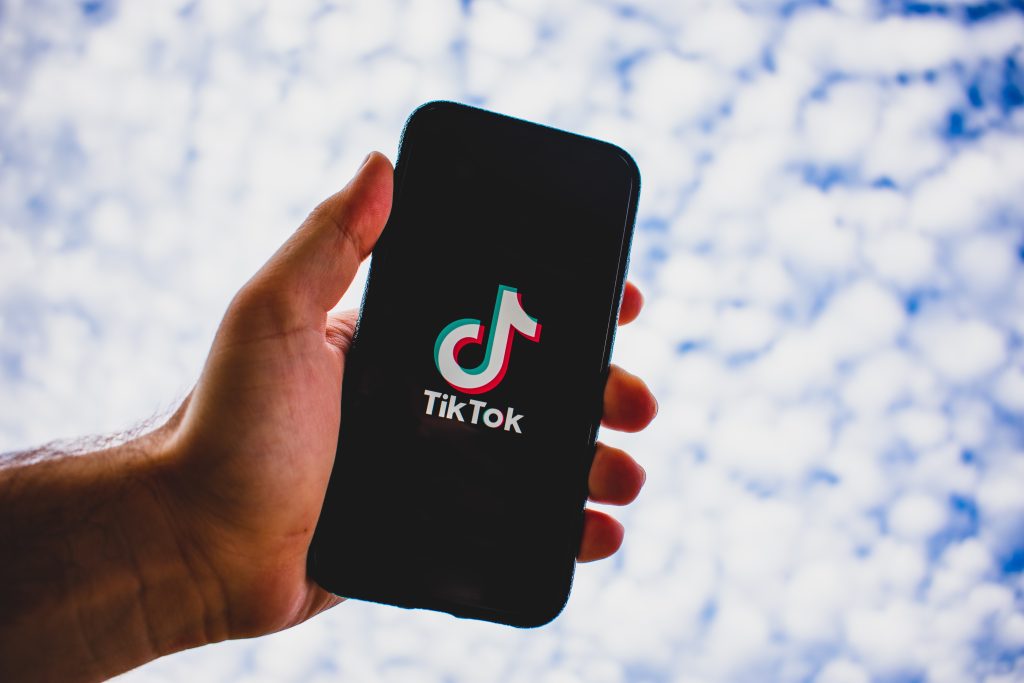
Over the last 6 months, TikTok (formerly known as Music.ly) has pushed itself to the forefront of pop culture, music and meme pages everywhere. A video-sharing social networking service aimed primarily at Gen Z (although millennials, Gen X and even families now regularly use the app) which allows you to share videos with millions of other users worldwide, within the app and beyond. Unsurprisingly, this platform rapidly gained popularity during the lockdown period thanks to its straightforward interface and fast adjusting algorithm. TikTok has made creating videos easy, whilst also offering an array of filters, effects, stickers and the ability to collaborate with other user’s content, all within a 60 second window. Unlike other apps such as Instagram where you are limited by the content you can upload and interact with, TikTok allows everyone to re-use one another’s content to remix it however you like, providing an endless stream of creative possibility.
The Covid-19 lockdown forced us all to stay home and adjust our lives and habits, and whether deliberately or not, for most of us this meant spending more time with our electronic devices. Many of us immersed ourselves into TV shows, movies, playing video games and TikTok videos. As someone who was on the app regularly before lockdown had begun, I can definitely say that the increase in creators and breadth of content since lockdown was introduced has been incredibly clear and nothing but entertaining. TikTok made a huge move where tonnes of previously passive viewers, now with an abundance of time on their hands whilst stuck at home, had started uploading videos of themselves dancing to Doja Cat routines or sharing their quarantine meals. Many people uploaded these clips just for fun, but certain users tapped into the idea that TikTok could make you famous and earn you money, with many gaining sponsorships and using the platform to plug their other endeavours. Lockdown helped birth many TikTok influencers, and this is only growing.
TikTok also gained huge popularity thanks to its relatable lockdown content and trends. With everyone all over the world stuck with online video calls to replace their classes and lectures, many took to TikTok to produce some comedy out of this situation by using zoom tools and their online learning for creating content. The lockdown allowed people to push boundaries with how they create, being confined to their own homes forced them to become more original and to recreate things at home. Whether done for the online flex or out of genuine desire, the platform encouraged people to develop skills from their bedrooms, boosting their popularity within the app and outside of it.
TikTok’s potential as a platform is also what helped it further its popularity so rapidly. There are several big TikTokers who originally came from our beloved Vine after being shut down in 2017. There are also many famous YouTubers who joined TikTok to attract more people to their main channels where they make the bulk of their content and livelihood. But still, there are many people who just go on TikTok and create content for the fun of it, and unintentionally many have ended up becoming famous overnight due to the algorithm, hashtags, and sheer number of users active on the app.
Although the app mainly focuses on circulating comedy and light-hearted content, it’s also a wonderful platform to gain information and to form communities. From baring ample information on the #BLM movement and giving voices to many LGBTQ+ advocates, to secondary school teachers creating content to help their pupils and lecturers doing Q&As, TikTok has it all, and it’s free to all. It’s the perfect app for both spending time watching funny videos but also getting creative and learning something new. A comfort blanket which allowed people a form of escape during lockdown, but has continued beyond.
Although the app mainly focuses on circulating comedy and light-hearted content, it’s also a wonderful platform to gain information and to form communities. From baring ample information on the #BLM movement and giving voices to many LGBTQ+ advocates, to secondary school teachers creating content to help their pupils and lecturers doing Q&As, TikTok has it all, and it’s free to all. It’s the perfect app for both spending time watching funny videos but also getting creative and learning something new. A comfort blanket which allowed people a form of escape during lockdown, but has continued beyond.
Francesca Benvenutto
